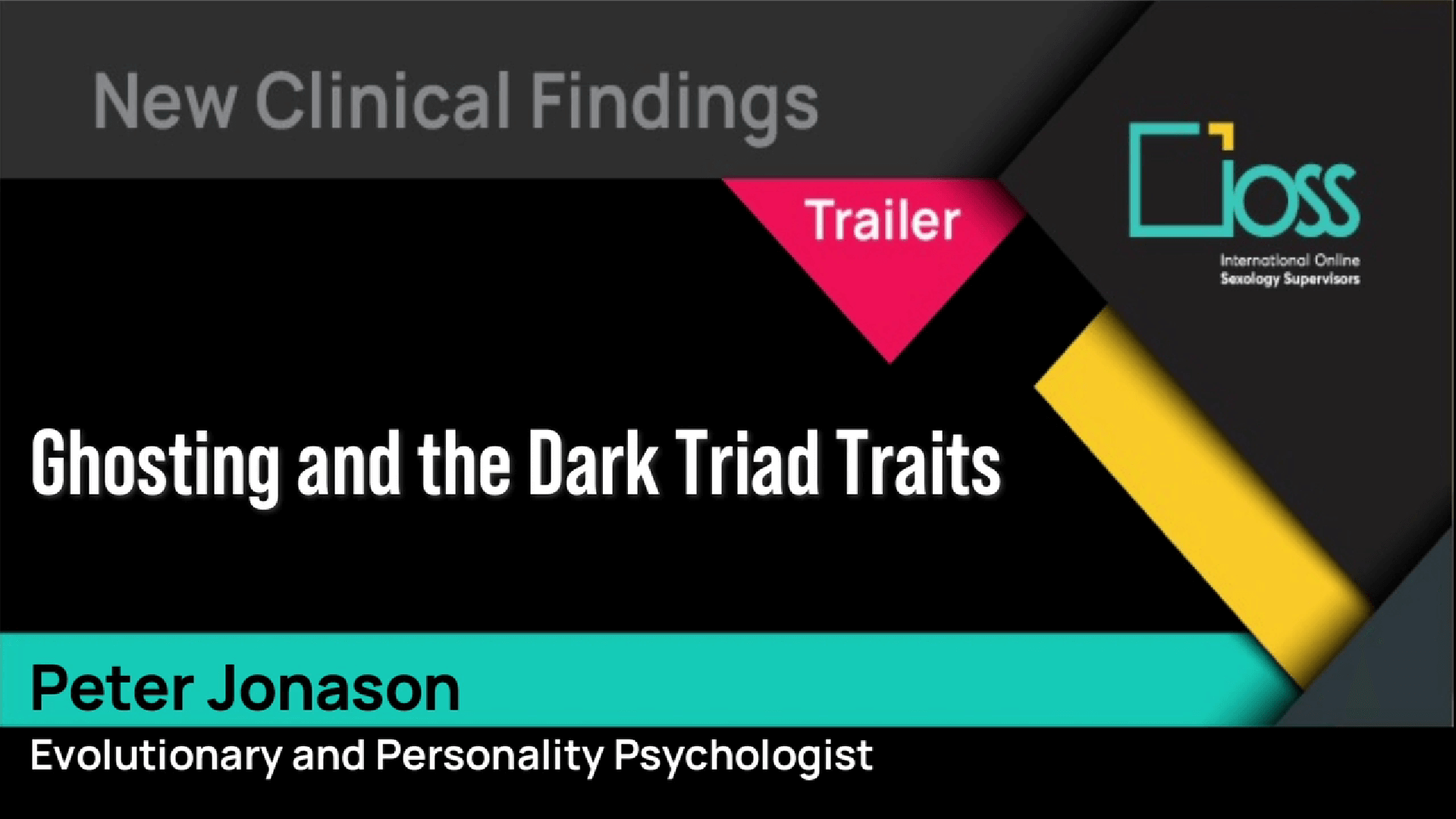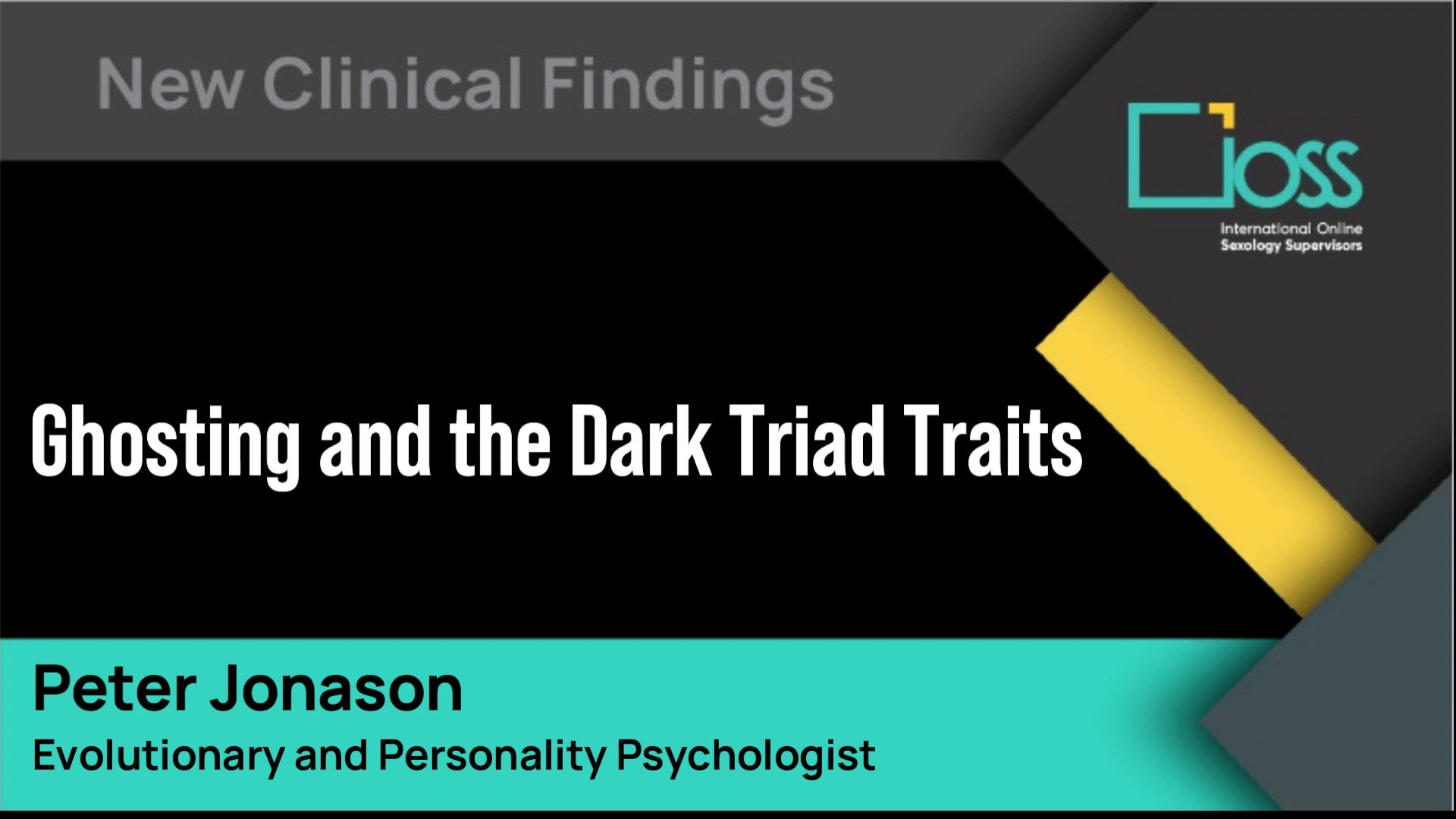Ghosting and the Dark Triad Traits
18m
Peter Karl Jonason
Evolutionary & Personality Psychologist
 Trailer
Trailer Get AccessFull Video
Get AccessFull VideoThe term “Dark Triad” refers to a trio of negative personality traits—narcissism, Machiavellianism, and psychopathy—which share some common malevolent features. Narcissism is characterized by a grandiose sense of self-importance, a lack of empathy for others, and a constant need for admiration. Machiavellianism involves manipulating and exploiting others for personal gain and focusing on deception. Psychopathy features a lack of empathy and remorse, impulsivity, and a tendency toward antisocial behavior.
On the other hand, ghosting refers to the sudden and unexpected cessation of communication with someone, often in the context of a personal relationship. It commonly occurs in the realm of dating, where one person abruptly stops responding to messages, calls, or other forms of communication without providing any explanation or closure. This behavior can be hurtful and confusing for the person being ghosted, as they are left with a sense of being dismissed.
Peter Jonason has implemented extensive research on the people with Dark Triad traits and their mating behaviors. In this video, he refers to his research, specifically looking at their ghosting behaviors. However, he goes beyond the specific study to share data that can help us understand what kind of relationships the Dark Triad person is seeking and how this applies to today’s dating scene.
Produced in 2023

Peter Karl Jonason
Evolutionary & Personality Psychologist
Speaker
Peter Karl (PK) Jonason holds the rank of Associate professor at the University of Padua (IT) and Full Professor at the University of Cardinal Stefan Wyszyńskiego (POL), and is a visiting professor at the University of Silesia (POL).
He is an expert in the Dark Tetrad traits, mate choice, psychometrics, and sex differences. He received his Ph.D. in 2009 from New Mexico State University and the IgNobel award in psychology in 2014.
He has over 200 publications in peer-reviewed journals, has served or is serving as editor for several journals like Personality and Individual Differences and Frontiers in (Evolutionary) Psychology, and has been awarded over 100K Euro in grant money from the National Science Center of Poland.
He originally planned to be a lawyer but when introduced to evolutionary psychology by a former supervisor, he changed his career plans to be a researcher. Now he is one of the youngest and most cited evolutionary psychologists in the world. He runs the virtual lab (ala Reseachgate) called Personality, Relationships, and Evolutionary Psychology which has members from Australia, the USA, Austria, Poland, and more.
More information can be learned about him on his website www.peterjonason.com.


